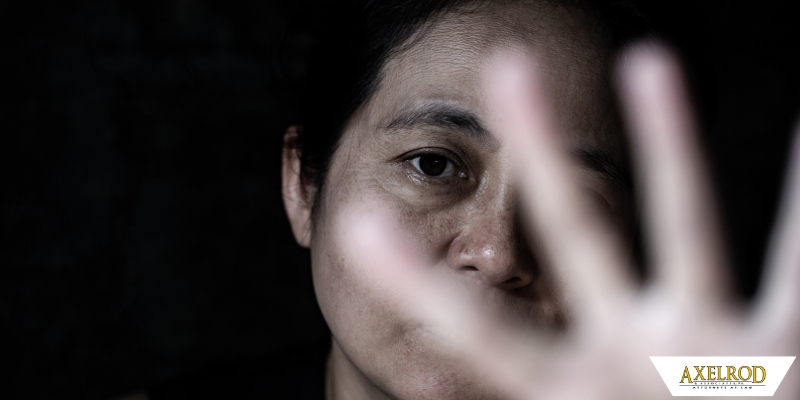4701 Oleander Drive, Suite A
Myrtle Beach, SC 29577
4701 Oleander Drive, Suite A
Myrtle Beach, SC 29577
Myrtle Beach Assault and Battery Lawyer
Assault and Battery Attorneys in Myrtle Beach, SC
The Myrtle Beach assault and battery defense lawyers at Axelrod and Associates have the experience that you need to get your charges dismissed, find a resolution that meets your goals, or try your case to a jury when necessary.
If you are convicted of assault and battery in SC, it could mean jail time, prison, fines, and a record that brands you as a violent person. It is critical that you get a defense lawyer on your case immediately who knows how to prepare your case for trial and negotiate with your prosecutor.
Your assault and battery lawyer on the Axelrod team will:
- Meet with you to discuss your case and your options,
- Investigate your case and gather the evidence you will need to negotiate with the prosecutor or try your case to a jury,
- Get and review the evidence that the prosecution will use against you,
- Retain and consult with expert witness or investigators when they can help with your defense,
- Prepare your case for trial,
- Negotiate with your prosecutor, and
- Get your case dismissed, negotiate a resolution that meets your goals, or try your case to a jury.
What is Assault and Battery in SC?
Assault means to threaten a person with physical harm with the present ability to carry out the threat. For example, if I raise my fist and say, “I’m going to punch you,” that’s assault. Or, if I point a gun at a person, that is assault.
Battery is when you physically harm a person – it involves physical contact. If you punch someone in the nose, that’s battery. Or, if you fire a gun and the bullet strikes a person, that is a battery (and possibly murder or attempted murder).
SC law combines the offenses of 1) assault and 2) battery into the single offense of “assault and battery.” Depending on the facts of the case and how it is charged, however, the crime could be based on either an assault or a battery…

Assault and Battery 3rd Degree
Third-degree assault and battery charges involve either 1) injuring another person (battery) or 2) threatening to injure another person (assault).
Assault and battery third degree is usually charged when the alleged victim has minor injuries like bruises, minor cuts, or scrapes, and it carries up to 30 days in jail.
Assault and Battery 2nd Degree
Second-degree assault and battery charges also involve either 1) injuring another person or 2) threatening to injure a person, but also:
- It resulted in moderate bodily injury or could have result in moderate bodily injury, or
- It involved touching another person’s private parts.
Moderate bodily injury is defined in SC Code Section 16-3-600 as “physical injury that involves prolonged loss of consciousness, or that causes temporary or moderate disfigurement or temporary loss of the function of a bodily member or organ, or injury that requires medical treatment when the treatment requires the use of regional or general anesthesia or injury that results in a fracture or dislocation.”
Private parts is defined as “the genital area or buttocks of a male or female or the breasts of a female.”
2nd degree assault and battery carries up to three years in prison.
Assault and Battery 1st Degree
First-degree assault and battery could mean 1) assault or 2) battery. If the alleged victim is injured (battery), it is assault and battery first degree if:
- The defendant touched the alleged victim’s private parts without consent and with a lewd intent, or
- The battery happened during the commission of a burglary, robbery, kidnapping, or theft.
If there was an assault only (a threat or attempt to injure), it is assault and battery first degree if:
- The assault would have caused great bodily injury or death, or
- The threat was made during the commission of a burglary, robbery, kidnapping, or theft.
Great bodily injury is defined as “bodily injury which causes a substantial risk of death or which causes serious, permanent disfigurement or protracted loss or impairment of the function of a bodily member or organ.”
1st degree assault and battery carries up to ten years in prison.
Assault and Battery of a High and Aggravated Nature
Assault and battery of a high and aggravated nature (ABHAN) only applies to batteries (physical injury) that:
- Resulted in great bodily injury, or
- Were likely to result in great bodily injury or death although it did not.
ABHAN carries up to twenty years in prison.
Attempted Murder
Attempted murder in SC used to be called “assault and battery with intent to kill.” It is the attempt to unlawfully kill another person with malice aforethought, whether express or implied, and it carries up to 30 years in prison.
FAQs About South Carolina Assault and Battery Laws
Every case is different – different defendants, different prosecutors, different arresting officers, different alleged victims, and different circumstances. You should contact your Myrtle Beach assault and battery attorney on the Axelrod team for advice specific to your case.
Can my assault and battery charges go to PTI or pretrial diversion?
Assault and battery charges may be eligible for pretrial intervention (PTI), but only when the prosecutor and alleged victim agree. Ultimately, it is in the prosecutor’s discretion, but assault and battery third degree charges can and often are sent to PTI when the defendant does not have a substantial criminal record.
Can my assault and battery charges be reduced?
Each “degree” of assault and battery is a lesser included offense of the more serious degrees:
- Assault and battery of a high and aggravated nature (ABHAN) is a lesser included offense of attempted murder,
- Assault and battery first degree is a lesser included offense of ABHAN and attempted murder,
- Assault and battery second degree is a lesser included offense of assault and battery first degree, ABHAN, and attempted murder, and
- Assault and battery third degree is a lesser included offense of assault and battery second degree, assault and battery first degree, ABHAN, and attempted murder.
This means that the prosecutor can reduce your charges to a lesser degree of assault and battery for purpose of a plea agreement, or a jury can find you guilty of a lesser degree of assault and battery at trial if the facts support the lesser charge.
Can the alleged victim dismiss my assault and battery charges?
Your prosecutor can dismiss your assault and battery charges if there is insufficient evidence or if it is in the interest of justice.
The court can dismiss your assault and battery charges on a motion made by your attorney for lack of evidence or lack of probable cause.
The alleged victim cannot dismiss your assault and battery charges, because they are not a party to the action – the “plaintiff” in your case is the State of SC, not the victim. The alleged victim can request that the prosecutor dismiss your case, and, in some cases, the prosecutor will agree.
Do not attempt to talk to the alleged victim in your case, because there is most likely a no-contact provision in your bond.
Your bond could be revoked, and you may end up facing new charges for tampering with a witness… If the alleged victim in your case requests that the charges be dropped, that is something that the prosecutor and your assault and battery defense lawyer must handle for you.
GOT AXELROD?
If you have been charged with assault and battery in SC, you need to consult with an experienced assault and battery attorney immediately – before you talk to police or investigators.
Call your assault and battery lawyer on the Axelrod team now at 843-916-9300 or complete our contact form for a free initial consultation.
Need help? Contact Axelrod & Associates, P.A.

Request your
Consultation
The fields marked with * are mandatory.






